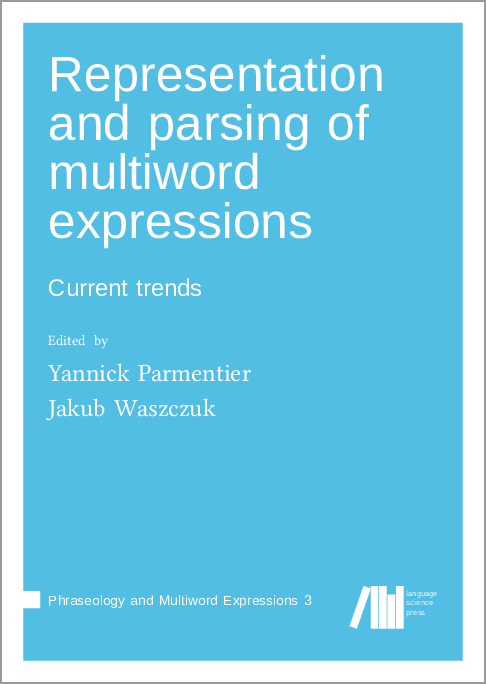We log anonymous usage statistics. Please read the privacy information for details.
Representation and parsing of multiword expressions: Current trends
Synopsis
This book consists of contributions related to the definition, representation and parsing of MWEs. These reflect current trends in the representation and processing of MWEs. They cover various categories of MWEs such as verbal, adverbial and nominal MWEs, various linguistic frameworks (e.g. tree-based and unification-based grammars), various languages including English, French, Modern Greek, Hebrew, Norwegian), and various applications (namely MWE detection, parsing, automatic translation) using both symbolic and statistical approaches.
Chapters
-
Preface
-
Lexical encoding formats for multi-word expressions: The challenge of “irregular” regularities
-
Verbal MWEs: Idiomaticity and flexibility
-
Multiword expressions in an LFG grammar for Norwegian
-
Issues in parsing MWEs in an LFG/XLE framework
-
Multi-word expressions in multilingual applications within the Grammatical Framework
-
Statistical MWE-aware parsing
-
Investigating the effect of automatic MWE recognition on CCG parsing
-
Multilingual parsing and MWE detection
-
Extracting and aligning multiword expressions from parallel corpora
-
Cross-lingual linking of multi-word entities and language-dependent learning of multi-word entity patterns

Downloads
Published
July 4, 2019
LaTeX source on
GitHub
Cite as
Parmentier, Yannick & Waszczuk, Jakub (eds.). 2019. Representation and parsing of multiword expressions: Current trends. (Phraseology and Multiword Expressions 3). Berlin: Language Science Press. DOI: 10.5281/zenodo.2579017
Copyright (c) 2018 Language Science Press
Details about the available publication format: PDF
PDF
ISBN-13 (15)
978-3-96110-145-0
Publication date (01)
2019-06-21
doi
10.5281/zenodo.2579017
Details about the available publication format: Hardcover
Hardcover
ISBN-13 (15)
978-3-96110-146-7



